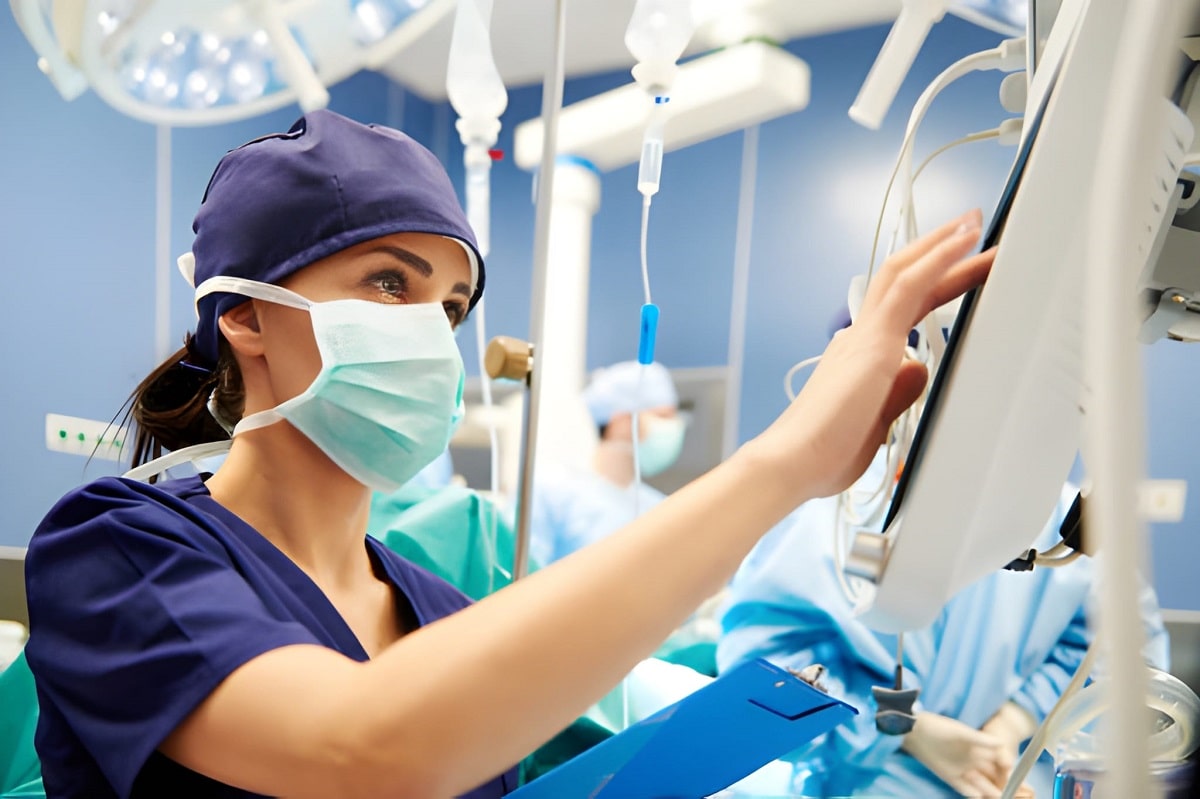When we talk about surgery, there is a whole team from nurses to surgeons, anesthesiologists, and CRNAs that perform the whole procedure. CRNAs are important members of that team whose top priority is patient safety.
CRNA is the abbreviation used for Certified Registered Nurse Anesthetists. But do the healthcare facilities need them with the evolving technological advancements?
This blog will help you understand who CRNAs are, what the future of this profession is, and how CRNA staffing is done in the modern age.
What is a CRNA?
A CRNA is an advanced practice nurse who is responsible for administering anesthesia, monitoring the patients during surgery, and managing postoperative pain.
This profession can be achieved after completing degrees like Doctor of Nursing Practice (DNP) or Doctor of Nurse Anesthesia Practice (DNAP).
They also have to go through rigorous training in order to become skilled and expert professionals. Just like the surgeon or anesthesiologists, they are an important part of the surgery team, especially where anesthesiologists are limited.
What Does a CRNA Do?
CRNAs can provide a wide range of services, including:
- Preoperative assessment:
Evaluating the patient and their medical history before the surgery and deciding on the safest anesthesia plan.
- Anesthesia administration:
Providing general, local, or regional anesthesia according to the patient’s needs.
- Monitoring the patient:
Continually monitoring the vital signs, oxygen levels, and stability of the patient during the procedure.
- Postoperative care:
Managing or controlling pain and addressing any complications that arise after anesthesia.
- Collaborative practice:
Working alongside surgeons, nurses, and anesthesiologists to ensure patient safety and care.
- Extra responsibilities: In some healthcare facilities, the CRNA also trains new staff and contributes to developing anesthesia staffing strategies that keep operations patient-centered.
Demand for CRNAs
Around the world, the demand for CRNAs is growing rapidly, but why is that? It’s because the number of medical procedures and surgeries is also increasing every year.
Whether it’s due to the aging population or because of the elective surgeries, the healthcare industry now has a huge demand for skilled CRNAs.
Additionally, the shortage of anesthesiologists has also created an opportunity for CRNAs to fill essential roles in hospitals and surgical centers. Because of the high increase in demand, CRNA staffing has become a top priority for healthcare administration.
How the CRNA Role is Changing
Over the past few years, the CRNA profession has changed a lot. Once seen as only a support provider, CRNAs are now known as highly skilled professionals capable of managing anesthesia care independently.
Many states in the USA are now offering them full practice authority, which allows them to offer anesthesia services without the supervision of a physician. This change has increased confidence in CRNA training, judgment, and ability to maintain patient safety, due to which more people are joining this profession.
This change means that anesthesia recruitment must adapt and look for professionals who are not only clinically skilled but also capable of adapting to the changing healthcare environment.
The Future of this Profession
The future of CRNAs is very bright. As the healthcare system expands and the surgical demand increases, the need for anesthesia and CRNA staffing will also continue to rise.
New CRNAs are entering the workforce with advanced degrees, deeper clinical knowledge, and more technological skills than ever before. Their versatility and flexibility make them an important part of various departments, whether it’s the cardiology, neurology, or any other department. There is always a need for skilled CRNAs.
But how do you know that the CRNA being hired by a healthcare facility is skilled? That is where an anesthesia staffing agency like 1MAC Anesthesia steps in. They provide a marketplace where facilities can find expert CRNAs and the CRNAs can easily find job openings.
CRNA and Staffing Agencies
Now that most of us have left the newspapers and moved on to websites and mobile applications. An anesthesia staffing agency like 1MAC Anesthesia can help provide CRNAs and anesthesiologists the opportunity to find jobs, locum tenens assignments, and permanent positions, and gain access to healthcare facilities that align with their skills.
And for healthcare facilities, partnering with a staffing agency means quick access to the skilled professionals they need. Whether they need CRNA staffing, anesthesia staffing, or emergency coverage, 1MAC’s expert recruiters make the process seamless.
Now the CRNAs don’t have to worry about finding a job after completing their degree; all they have to do is register with 1MAC and then leave the rest to them.
Conclusion
The CRNA is a growing profession in modern times. As healthcare continues to expand, the CRNA will remain a cornerstone of safe, high-quality patient care, and their demand will be ever-increasing.
Their expanding role and increasing demand for flexible anesthesia coverage mean that CRNA staffing and recruitment will be a top priority for healthcare systems in the future.
The future of this profession isn’t just promising; it’s, in fact, empowering. And with staffing agencies like 1MAC, the future is already taking shape by creating job opportunities for CRNAs in different healthcare settings.











